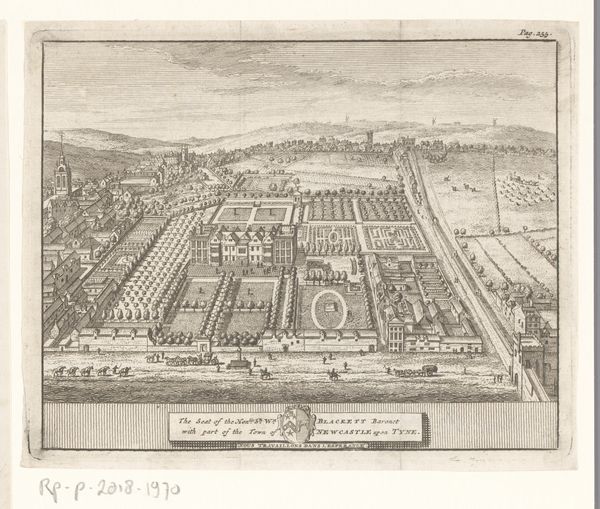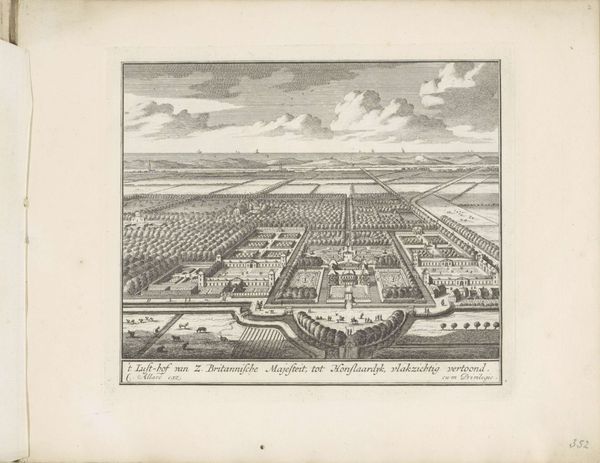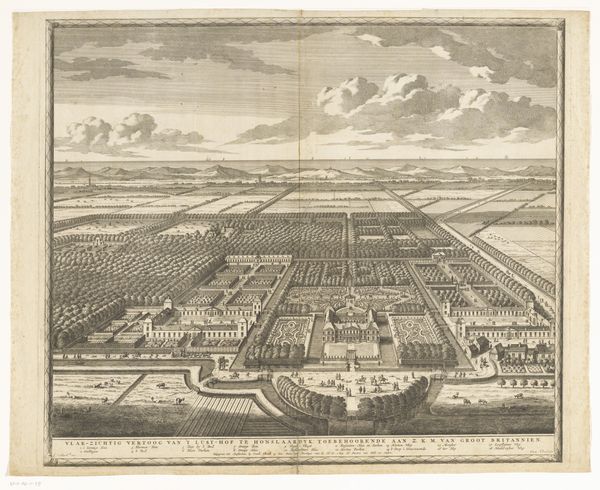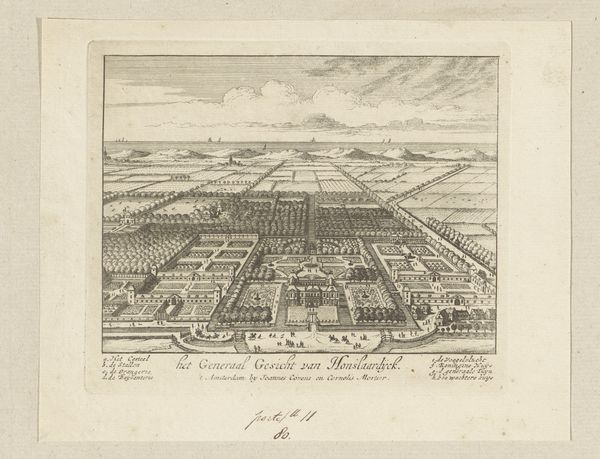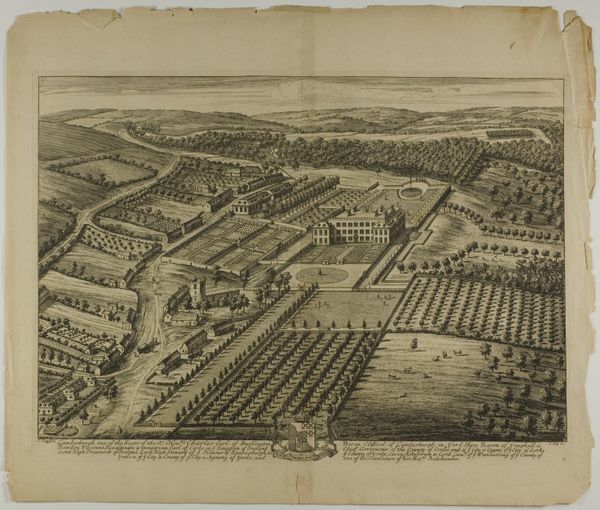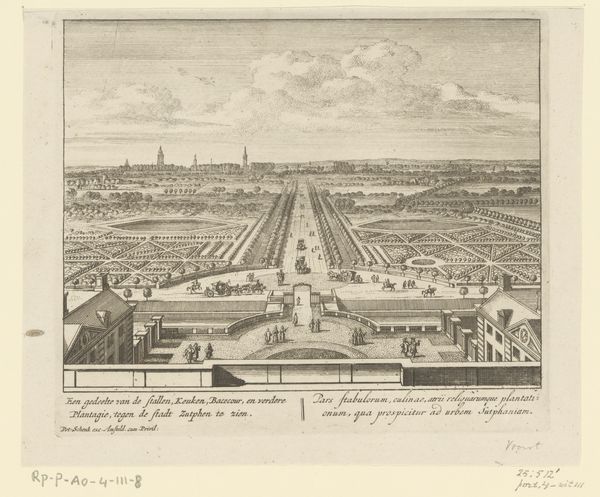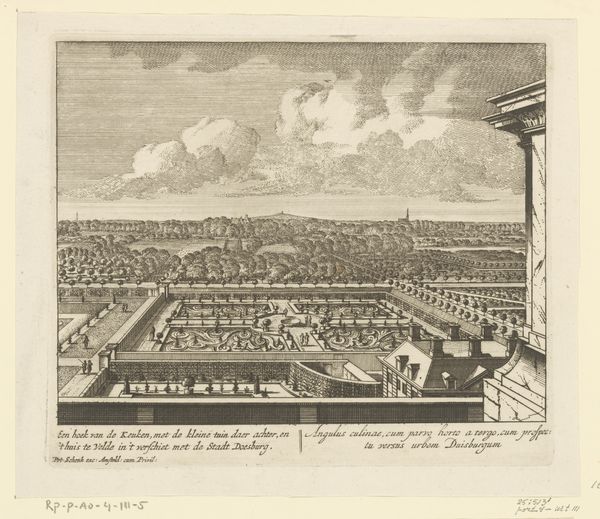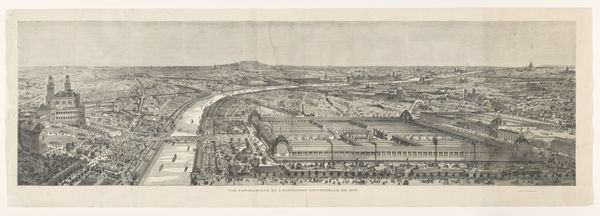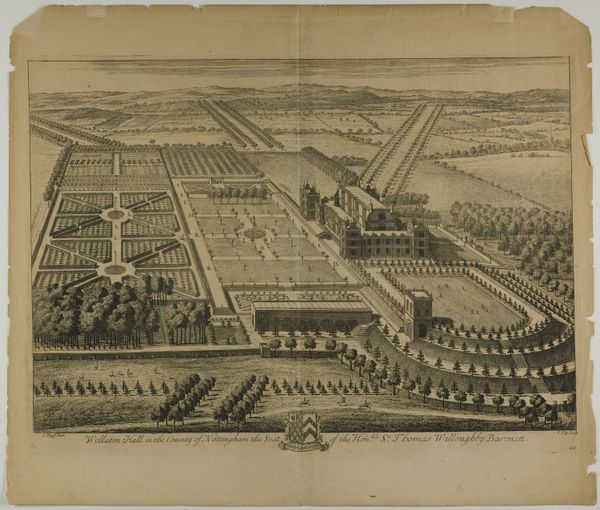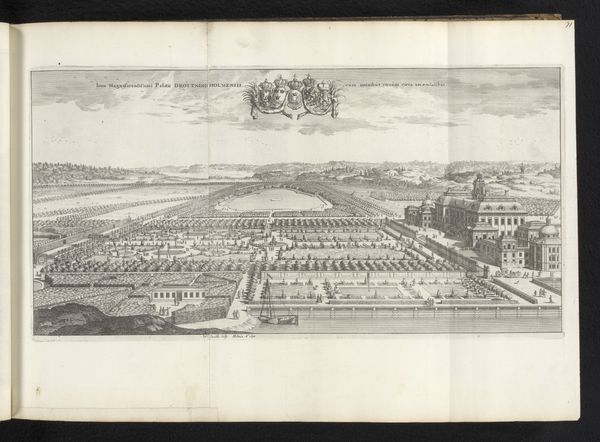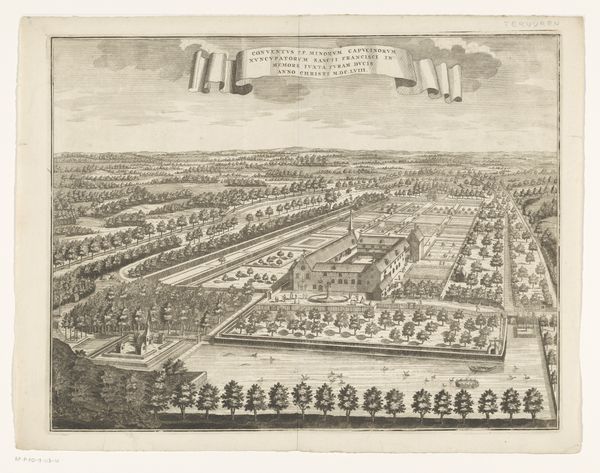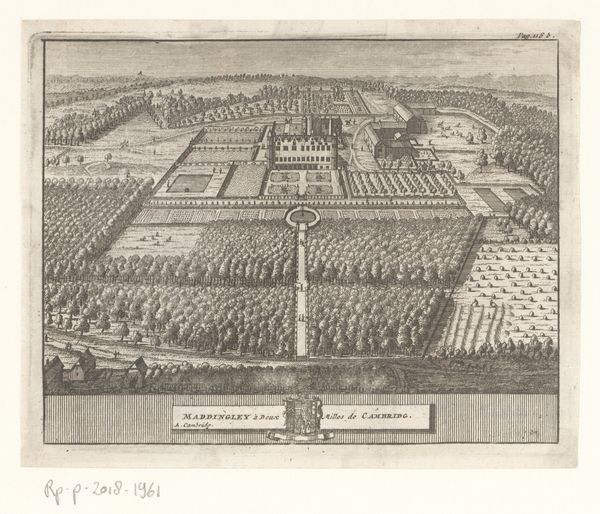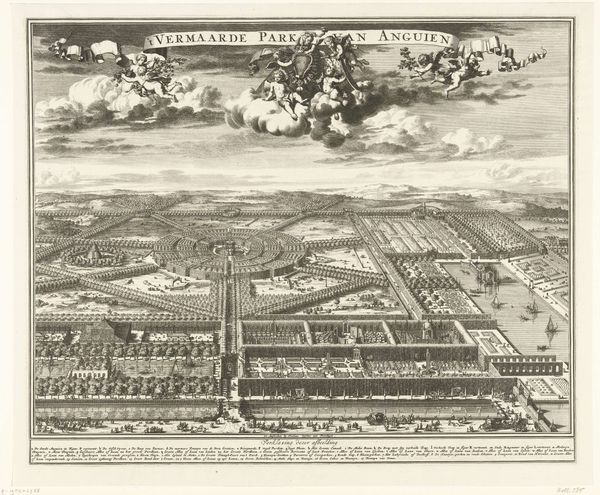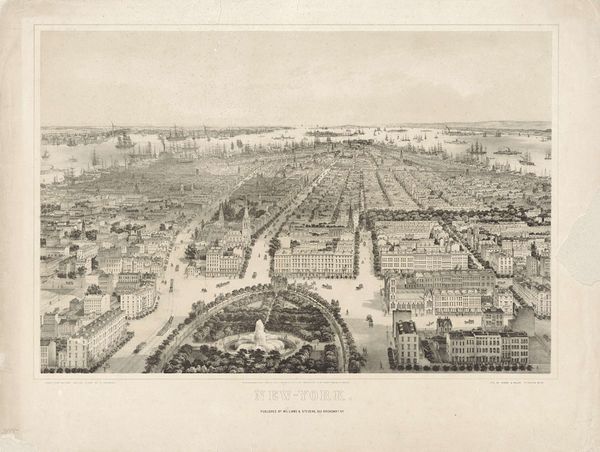
print, engraving
#
baroque
#
dutch-golden-age
# print
#
landscape
#
perspective
#
cityscape
#
engraving
Dimensions: height 174 mm, width 213 mm
Copyright: Rijks Museum: Open Domain
This print, made by Hendrik de Leth, gives us a bird’s-eye view of Huis ter Meer, a grand estate near Maarssen. The image is rendered through engraving, a process that involves meticulously cutting lines into a metal plate, which is then inked and printed. Engraving was a highly skilled and labor-intensive practice. Its prevalence in the 18th century was closely tied to the rise of print culture and the demand for detailed visual representations of landscapes and properties. The sharp, precise lines achievable through engraving allowed for the depiction of Huis ter Meer's elaborate gardens, architecture, and surrounding landscape, showcasing the owner’s wealth and status. Such prints served not only as aesthetic objects but also as symbols of power and control over the land. The medium of engraving, with its capacity for detail and precision, thus becomes a tool for celebrating and reinforcing social hierarchies. By examining the materials and making of this print, we gain insight into the cultural values and economic structures of the time.
Comments
No comments
Be the first to comment and join the conversation on the ultimate creative platform.
